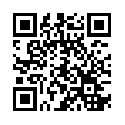Mobile apps are taking over — but, really, are you surprised?
A new report from Flurry says people are spending more time in mobile apps than watching TV. In 2015, U.S. consumers spent 198 minutes in mobile apps per day compared to 168 minutes watching TV. That time in mobile apps is up from 139 minutes in 2014 and 126 minutes in 2013, and that doesn’t include time spent in mobile browsers.
The report also notes it’s difficult to quantify how much of that time spent on apps overlaps with time spent on TV, since lots of people use their phones while watching TV. And while apps are making headway, TV usage isn’t decreasing. while apps are making headway, TV usage isn’t decreasing.
Meanwhile, mobile users have been trained to pay for content, according to the report. Games have traditionally dominated the top-grossing charts of app stores.And with a growth in sales from in-app purchases, traditional media companies could “move its content to apps and stream it over-the-top, charge consumers for it through the App Stores, and still make money from ads,” the report concludes.
Flurry’s data comes at the cusp of the new Apple TV announcement. At Wednesday’s Apple event, CEO Tim Cook said the television experience has been static while mobile innovation has flourished. His response is a simple vision: “We believe the future of television is apps. In fact, this transition has already begun.” With the Apple TV’s new OS supporting apps and an App Store for third-party apps, users can stream content from Netflix as well as shop and play games.
With new features like these, one thing is clear: The future of television means more than just watching television.
http://mashable.com/2015/09/12/time-on-mobile-apps/#qQ.Eq8Sb0Pkj








